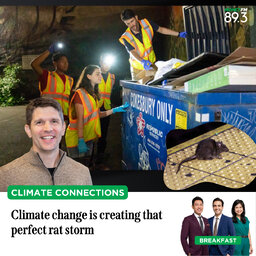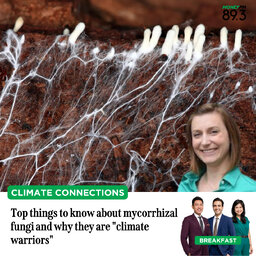Climate Connections: Tiny matters - Using acoustic sound waves to model how algae affects climate, human health
Algae are microscopic organisms that live in aquatic habitats and they use photosynthesis to produce energy from sunlight, just like plants. So far, there are over 50,000 species of living algae documented currently. And one thing that people sometimes forget is that algae are the base of many food webs and are an integral part of a healthy aquatic ecosystem.
But, algae can also grow out of control if the water around them contains too many nutrients, resulting in harmful algal blooms. And did you know that toxins from these harmful algal blooms could get kicked up into the air as airborne algae?
With the focus on climate change growing, scientists are continuing to document the effects of climate change on algae, and how airborne algae in turn interact with our environment.
On this episode of Climate Connections, Mickey Rogers, Pauling Fellow and Chemist, Pacific Northwest National Laboratory, who is researching airborne algae and its impact on atmospheric processing, shares her insights. She's currently also developing new methods of aerosol generation and online gas flux monitoring of biological cells including acoustic levitation of small particles.
Feature produced and edited by: Yeo Kai Ting (ykaiting@sph.com.sg)
Voiced by: Audrey Siek
Photo credits: Mickey Rogers / Pacific Northwest National Laboratory
Music credits: pixabay & its talented community of contributors
In 3 playlist(s)
Climate Connections
A special segment on MONEY FM 89.3's Breakfast Show that brings you on an exclusive audio journey to…Social links
Follow podcast
Recent clips

Climate Connections: Why do the pH levels of the early oceans matter? And what does it tell us about Earth’s evolving habitability in the broader context of climate change?
13:01

Climate Connections: Climate change is creating that perfect rat storm
16:53

Climate Connections: Top things to know about mycorrhizal fungi and why they are "climate warriors"
14:44
 Climate Connections
Climate Connections

